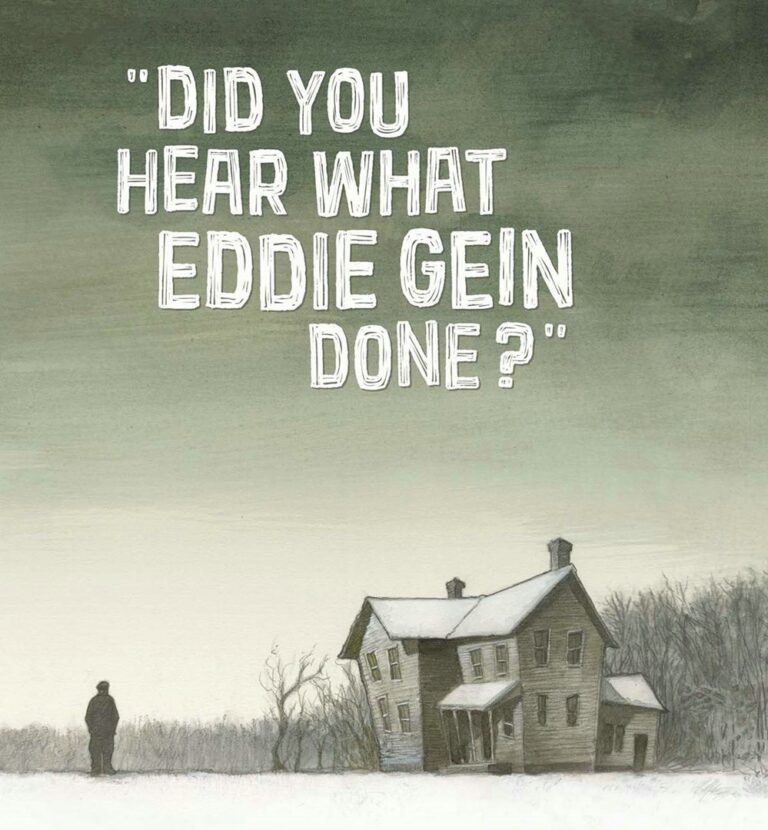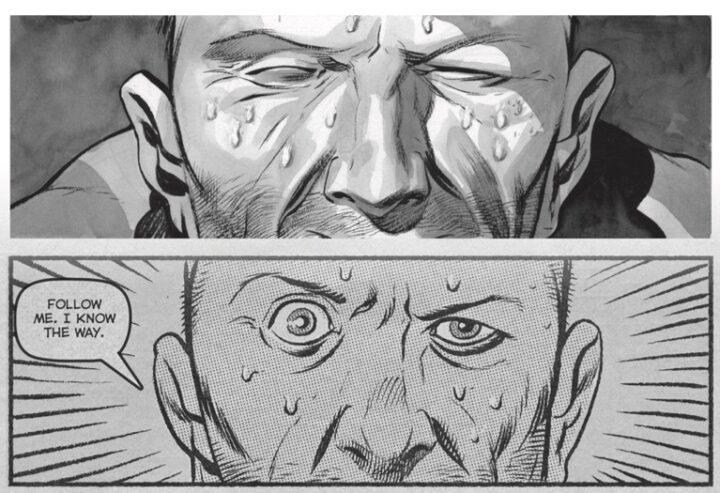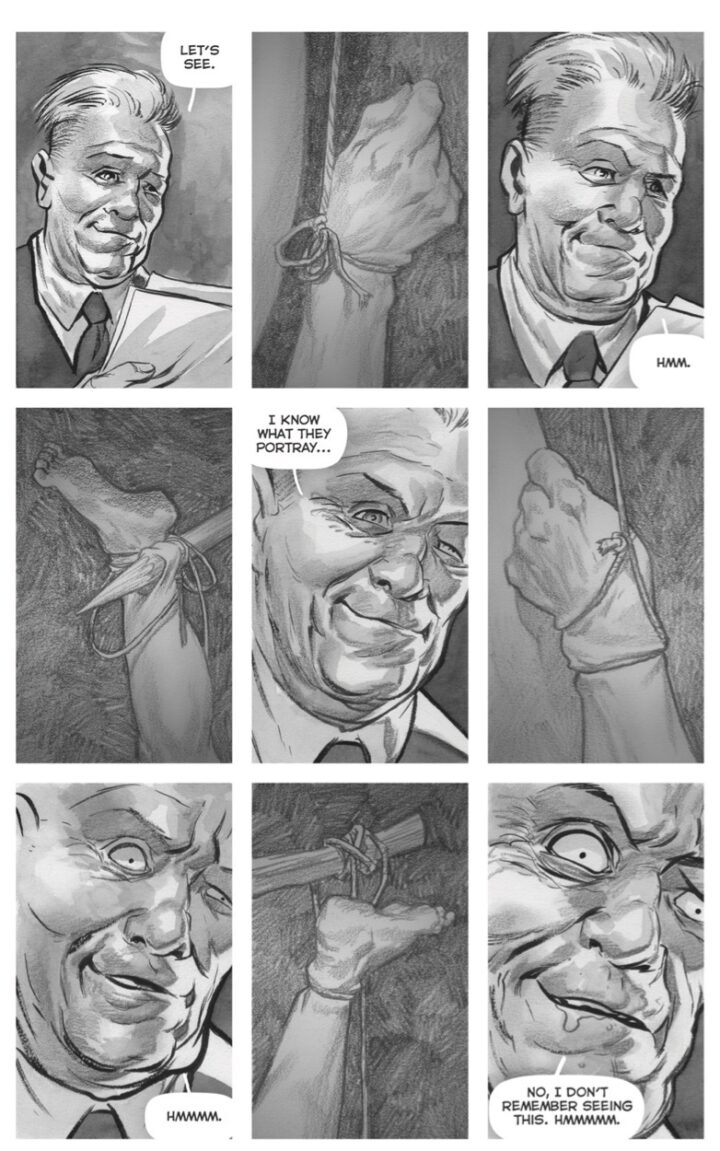Serial killers, while not a uniquely American phenomenon, are a uniquely American obsession. We are drawn to narratives of mass murder and mayhem like we are to little else; you could fill a row of warehouses with the media this country generates about these real-world bogeymen. We don’t just make books, movies, television, comics, and music about serial killers; we make books, movies, television, comics, and music about the books, movies, comics…well, you get the idea. Even as I write this, there is a lot of discourse around the purpose, nature, utility, and even gender of the ‘true crime’ genre, which tends to focus heavily on serial killers. Sure, there are other crimes besides multiple murder, but this is America! Why have burgers when you can have steak?
If that row of warehouses really did exist, entire shelves would be dedicated to the work of Harold Schechter. A professor at Queens College, Schechter is one of the grandees of true crime; his work predates the current wave of Netflix documentaries and murder-mystery podcasts, and he’s penned books on practically every notorious monster of the American psyche, from Albert Fish and H.H. Holmes to Carl Panzram and Belle Gunness. One of the first books he ever wrote on the subject was about Ed Gein, and here he is again, authoring this handsome and thoroughly researched book about the infamous Wisconsin killer, grave-robber, and corpse-defiler.
Gein has always been a fascinating case. In terms of body count (which, in the world of true crime, is the sexiest statistic, the equivalent of home runs in baseball), he was pretty much a dud, tallying a meager two killings. But the grim details of the house of horrors he inhabited in tiny, unremarkable Plainfield are what made him one of the country’s most notorious maniacs and led to so many people patterning fictional killers, from Norman Bates to Leatherface to Buffalo Bill, on his story. Gein sewed suits of clothing out of the skins of dead bodies, made a belt out of nipples, ate his meals out of a bowl fashioned from the top of a skull, and performed a litany of other horrors. He was the quintessential American psychopath, and his story caused a media frenzy that loomed far larger than the human cost of his crimes.
Lonely, damaged, lunatic Eddie was arrested in late 1957, itself a somewhat surprising fact; so ingrained in the American mythology is his story that it’s easy to blur in the memory and think it happened much earlier, around the turn of the century. Reading Did You Hear What Eddie Gein Done?, it’s easy to have this kind of thought: What is there left to say about someone whose status as a horror from the heartland has been so thoroughly hashed over that it seems like there can’t be anything new to say about it? Of course, one might think the same thing about Charles Manson, and look how much new light has been shed on that uniquely American creature just in the past few years, from Quentin Tarantino reshaping his story into the stuff of show business mythology in Once Upon a Time in Hollywood to the disturbing revelations about his ties to government spooks in Tom O’Neill and Dan Piepenbring’s excellent book Chaos: Charles Manson, the CIA, and the Secret History of the Sixities.
Of course, Ed Gein – lonely, battered, pathetic, almost pitiable, working his dark craft in an empty house on a frigid plain in central Wisconsin – was no Charlie Manson. He was as much a product of his time and place as Manson was of his, but it was a very different time and place. And that’s where Eric Powell, the endlessly gifted artist behind The Goon and the primary reason to buy this book, comes in. Schechter’s writing is perfectly competent and sometimes very engaging, and no one can fault him for having a poor grasp on the facts of the case, but he’s a true crime writer in the classic sense: a very plain and straightforward journalistic style, wordy and precise but rarely artful, and more reliable than inventive.
Powell’s art, on the other hand, is superb as usual and shockingly well-suited to the story. His Wisconsin isn’t the wholesome land of the Packers and the Dells; it’s the nightmare refuge of Black River Falls, the terrain of madness and uncertainty depicted in Michael Lesy’s groundbreaking Wisconsin Death Trip, the home of Jeffrey Dahmer and David Spanbauer. Powell perfectly captures the terrain of postwar Wisconsin: its rattletrap buildings, its thin trees and snowbound plains, its stocky midwestern residents with their almost defensive sense of privacy, and its curious condition as a place torn between two eras, becoming a center of massive media hype while half its residents still didn’t have electricity.
He’s also tremendous at capturing faces and body language, and the characters here would be memorable even without dialogue. Gein’s well-meaning, doomed brother; their overbearing religious fanatic mother; the small-town sheriff and fire marshal, so far in over their heads; and of course, Gein himself, with his drooping eye and guileless expression, and his Mackinaw trapper’s cap with distended earflaps – so iconic that it’s become something of a shorthand for serial killers – are all so well-portrayed that they give a dark cinematic energy to the whole affair.
Perhaps that’s no accident. Gein, as noted, was famously the model for Psycho’s Norman Bates, and the film marked something of a transition from the noir era of doomed but sympathetic petty criminals and killers who were evil but relatable to the modern model of film villains as unexplainable, alien psychotics. Schechter puts a lampshade on this several times in the book, most memorably in the introduction, where he quotes Alfred Hitchcock discussing the case – which, of course, gives Powell the opportunity to draw the great director in all his brilliant, fleshy glory. Without Powell, Did You Hear What Eddie Gein Done? would be a serviceable but forgettable book on an old, familiar case. With him, it’s a vibrant, moody miniature, encapsulating everything compelling and absurd about true crime in the stark overcast shadows of a frigid Wisconsin winter.










